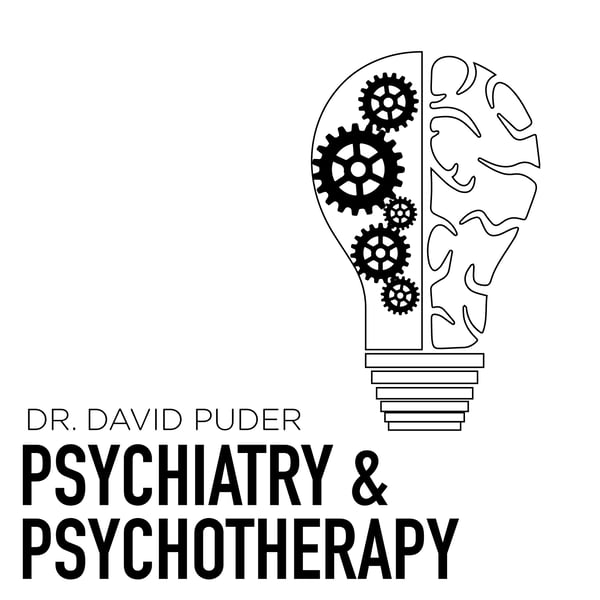The History, Mechanism and Use of Antidepressants
Psychiatry & Psychotherapy Podcast
David J Puder
4.8 • 1.3K Ratings
🗓️ 24 July 2018
⏱️ 59 minutes
🧾️ Download transcript
Summary
In this week’s episode of the podcast, Dr. Michael Cummings and I talk about the history of antidepressants, and their use in overcoming depression and anxiety disorders.
For blog and extended notes go here
Join David on Instagram: dr.davidpuder
Twitter: @DavidPuder
Facebook: DrDavidPuder
Transcript
Click on a timestamp to play from that location
| 0:00.0 | Welcome to the Psychiatry and Psychotherapy Podcast. The podcast to help you in your journey |
| 0:06.4 | towards becoming a wise, empathic, genuine, and connected mental health professional. |
| 0:11.6 | I'm your host, Dr. David Peter, a psychiatrist who splits his time practicing psychopharmacology, |
| 0:17.1 | individual and group psychotherapy, medical director of a day treatment program, |
| 0:21.2 | medical education research, and teaching, residence, and medical students. |
| 0:30.3 | Welcome back to the podcast. I am here once again with Dr. Michael Cummings, a great psychopharmacology |
| 0:42.4 | resource. He's been on us in prior talks on schizophrenia, the basics of psychopharm, |
| 0:49.7 | anti-psychotics, and psychopathy. Dr. Cummings, welcome back. |
| 0:55.5 | Thank you very much. I'm glad to be back. I understand today we're going to talk about |
| 1:00.1 | anti-depressants, particularly in relation to treating depression and anxiety disorders. |
| 1:07.7 | Yeah, so do you want to start again with a little bit of the history of the antidepressants? |
| 1:13.9 | Sure. If you may recall from our previous podcast on the anti-psychotics, |
| 1:22.1 | the investigation of antihistamines led to the discovery of promethazine and then to chlorpromazine, |
| 1:28.9 | and then the anti-psychotic sort of took off, and there was a period of about a decade of intensive |
| 1:35.6 | discovery and investigation of different anti-psychotic compounds. As you might guess, |
| 1:40.9 | though, as people made variants of the anti-psychotics or what they thought might be anti-psychotics, |
| 1:48.1 | some of the molecules that were produced turned out not to be dopamine antagonists, |
| 1:54.4 | but had other properties. One of the first in which that happened was the |
| 1:58.9 | tricyclic antidepressant in Mipramine, originally clinically discovered by Dr. Kuhn in Switzerland. |
| 2:09.1 | He was working in a psychiatric hospital, and at the time, research was not nearly as |
| 2:16.8 | regularized or as systematic as it currently has become, and he was largely experimenting |
| 2:23.6 | with a molecule he had been given a Mipramine, which he discovered was not effective in treating |
... |
Please login to see the full transcript.
Disclaimer: The podcast and artwork embedded on this page are from David J Puder, and are the property of its owner and not affiliated with or endorsed by Tapesearch.
Generated transcripts are the property of David J Puder and are distributed freely under the Fair Use doctrine. Transcripts generated by Tapesearch are not guaranteed to be accurate.
Copyright © Tapesearch 2025.

